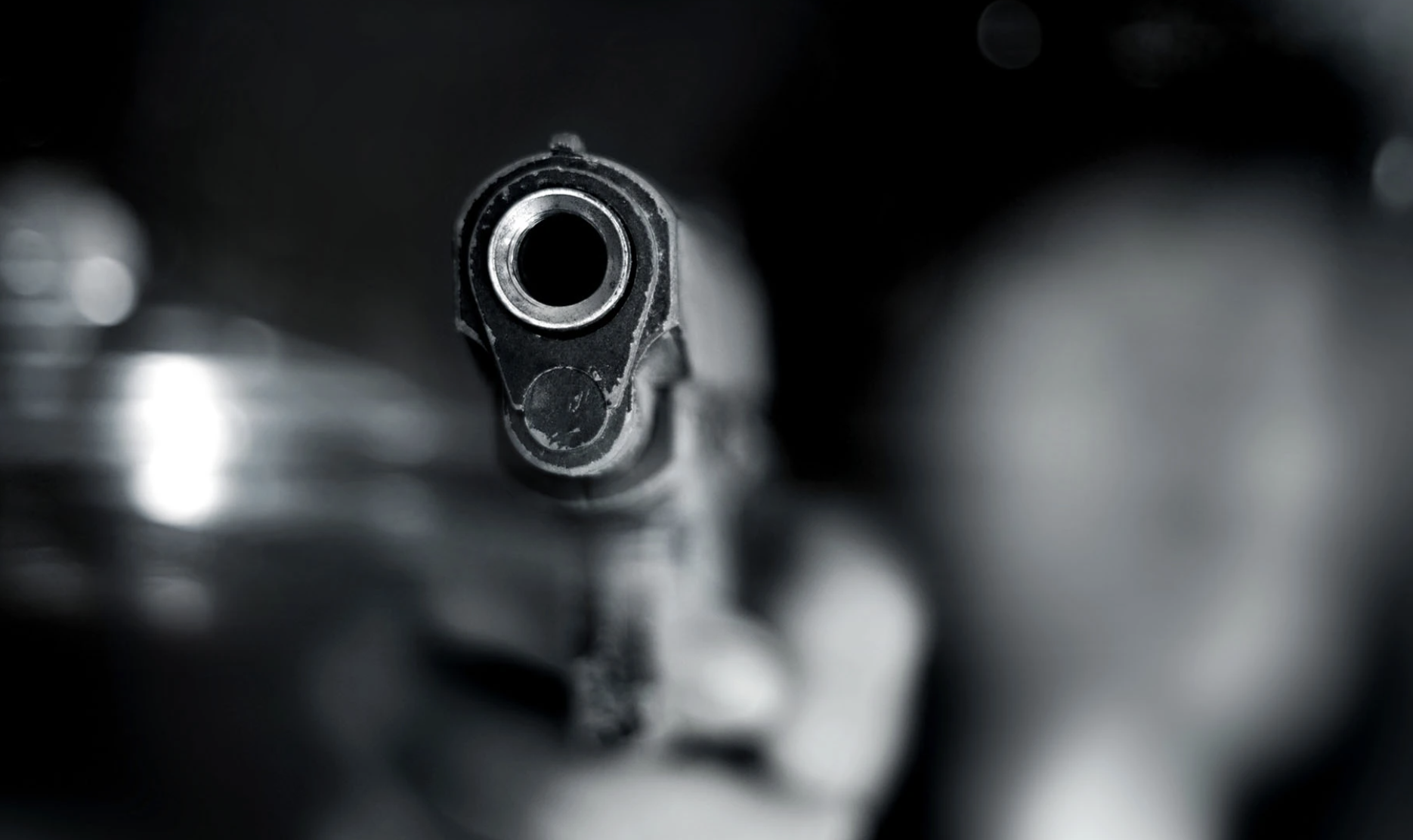News
The Dogs of War are Back – but is Ramaphosa Finally Seeing the Light on Wagner?
In his weekly newsletter, President Cyril Ramaphosa focused on ‘peace and stability in Africa’. He turned his attention to the causes of instability in the Sahel region, saying: ‘Recently, there have been unconstitutional changes of government in Guinea, Mali, Burkina Faso and Sudan, and all four member states remain suspended from the AU.’

Ramaphosa continued: “The involvement of foreign fighters, armed groups and mercenaries in African conflicts, as well as the rise of terrorism and violent extremism in Somalia, the Sahel region and northern Mozambique, also pose serious threats to the continent’s stability.”
When discussing the Sahel, mention of “foreign fighters, armed groups and mercenaries” shines the light directly on Russia’s Wagner Group, which operates in this region, providing armed support for governments that would not be in power if their people were permitted to choose.
The most glaring case is, of course, the Central African Republic, where Wagner is the de facto government, imposing armed control.
The Sahel area, a 1,000km-wide belt stretching 5,400km from the Atlantic Ocean to the Red Sea, cuts across parts of Senegal, Mauritania, Mali, Burkina Faso, Algeria, Niger, the north of Nigeria, Cameroon and the Central African Republic, Chad, Sudan and South Sudan, Eritrea and Ethiopia.
It is fraught with instability, violent extremism and poverty.
Since 2011, governments have been undone via the barrel of a gun in Mali, Chad, Sudan, Burkina Faso and Guinea – in some instances, more than once.
It’s starting to look like the bad old coup days of the 1970s. And the dogs of war are back, and barking, this time in Russian.
This has made the region, in the words of one seasoned diplomat, “the second most violent place after Ukraine”.
The coups and their aftermath illustrate deeper problems than simply the immature and volatile condition of civil-military relations. They go to the heart of the nature of the state in this region.
Wagner and emergence of ‘terrorist states’
The emergence of “terrorist states” amid this failure, and the presence, now, of the Russian Wagner private security group, complicate things further.
After a long period of military rule, Mali became a poster child for democratic transitions and the role of Western aid in helping things along, and was regarded as one of the most politically and socially stable countries in Africa.
In January 2013, presidential elections were won by Ibrahim Boubacar Keita. France launched Operation Barkhane in August 2014 involving cooperation with five former French Sahelian colonies: Burkina Faso, Chad, Mali, Mauritania and Niger – the military dimension being underpinned by the Algiers Accord in 2015, which detailed steps towards decentralisation, military integration and demobilisation, reconciliation and development.
The conflict did not stop, escalating between pastoralists and local communities, fuelled by the flow of weapons and ancient smuggling routes, and complicated by the growing role of Islamist elements. Still, Keita was re-elected in 2018 with 67% of the vote.
Amid deteriorating security, widespread public protest and faltering reforms, a coup followed in August 2020. Though power was handed back to a civilian authority, in May 2021, another coup resulted in Mali’s military commander, Assimi Goïta, being sworn in as an interim president.
The following February, France’s ambassador was expelled and Paris withdrew its troops from Mali under Operation Barkhane, which formally expired in November 2022.
Mercenaries help fill power vacuum
The vacuum in Mali and Burkina, which has experienced one popular uprising and two coups since longstanding president Blaise Compaoré was ousted in 2014, has partly been filled by the Russian Wagner private security group.
Captain Ibrahim Traoré seized power in a coup on 30 September 2022, ousting his predecessor Lieutenant-General Sandaogo Damiba, who had himself ousted President Marc Kaboré in an earlier coup in January 2022.
Traoré was officially appointed as president of Burkina Faso on 6 October 2022, justifying his actions on the grounds of continuing Islamist insurgency in the north of the country, the same reason that Damiba had ousted Kaboré.
Like Mali, Burkina has invited Wagner into the country, ostensibly to assist in providing security against Islamist forces.
And in Guinea, Lt-Colonel Mamady Doumbouya, the commander of the country’s special forces and former French legionnaire, overthrew President Alpha Condé in September 2021, accusing him of corruption, human rights abuses and mismanagement.
After many years in opposition, Condé had become president in 2010 in Guinea’s first democratic election since independence in 1960, was re-elected in 2015, but changed the constitution to run for a third term in 2020.
Doumbouya set up a National Committee of Reconciliation and Development, released political prisoners and announced an 18-month transition to democracy, undertaking not to stand in the resultant election.
Both Mali and Burkina are poor, but richer than most in agriculture and natural resources, especially gold. Mali ranks as the fifth largest gold producer in Africa, after Ghana, South Africa and Sudan (and 16th worldwide), and Burkina, the fifth. This may also help to explain the immediate interests of Wagner (and Russia) in providing security services. Guinea has among the world’s largest reserves of bauxite and iron ore.
Niger stability
Despite poverty and underlying problems, Niger has, until now, bucked the regional trend, proving a regional outlier of improving governance, stability and democracy.
President Mahamadou Issoufou set the direction and the tone. His successor, Mohamed Bazoum, had continued in much the same vein, with a long record of service as, first, Minister of Foreign Affairs and, between 2016 and 2020, Minister of State in the Presidency and for the Interior.
The first minority Diffa Arab president of Niger, Bazoum offers some insights into how to turn the theory of inclusive politics into practice. In highlighting the regional shift from insurgency and criminality driven by the politics of exclusion, he notes that Syria and Iraq have had a radicalising effect, with Daesh and Al Qaeda both operating “in a way that is confused with transnational criminal elements”.
Bazoum is well aware of the threat that Wagner poses, saying solutions “have to be focused on governance, especially good performance of the security forces” in meeting the new challenges that have sprung up “with coups, weakening economic prospects, and the changed international context in the form of Wagner”.
But governance includes “political solutions” such as the initiative of his predecessor to install a Taureg prime minister.
Visit Daily Maverick’s home page for more news, analysis and investigations

Rather than relying on inter-state solutions “preferred by the international community but which don’t work at all”, Niger has drilled down on governance specifics, including dealing with “banditry, cattle rustling and setting up taxation.”
Bazoum’s election is, says Issoufou, evidence – both of the success of these programmes and moving from identity to issue-based politics – of a shift which is so necessary to progress.
“Bazoum is from an ethnic group that represents just 0.2% of the population,” says his predecessor. “But he received 55% of the vote because he promoted policies that took care of the social needs of the population. This is the model that Africans and their leaders must follow.”
“In Niger,” says Bazoum reflecting on the situation in Mali and Burkina, “we built our institutions with care. We learnt from the Toureg rebellion in the 1960s and from our experience on our border. We lobbied President Ibrahim Boubacar [in Mali] to follow our experience, but he took a different path.
“We decided who would be a minister based on their ability, not a friend, or the friend of a son,” he said in an undisguised dig at the Malian president’s son who enjoyed widespread and highly unpopular influence.
Rule by force
“Perhaps they think they can now win with Wagner, but they don’t have this capacity. Their leadership, too, is under 40 years old. They are dealing with interests that they do not understand.”
Force alone will not solve Africa’s governance challenges, which lie at the root of radicalism and insurgency.
Wagner’s record of extraction and brute force suggests that it is likely not only to fail to create stability, but worsen it. It demands local ownership and an inclusive model.
In the words of former president Olusegun Obasanjo, the military head of state who led Nigeria to democracy in 1979 and, 20 years later, won election as a civilian president: “Security for us in Africa means that we Africans must be in the forefront. But we cannot do it alone.”
President Ramaphosa’s criticism of “foreign fighters, armed groups and mercenaries in African conflicts” represents a refreshing frankness about the malign effect of mercenary groupings such as Wagner. Curiously, the statement comes as Russia’s Vladimir Putin has apparently begun to tire of Wagner’s growing influence.
Does this signal that South Africa is finally waking up to the threat posed by this group, which is also heavily involved in the invasion of Ukraine? Or is the language sufficiently broad to keep Ramaphosa from alienating his friends in Moscow?
For the sake of Africa, let’s hope it’s the former.
This article originally appeared on the Daily Maverick
Photo: Rawpixel | Wikimedia


